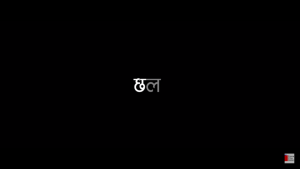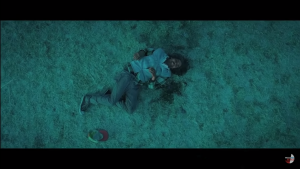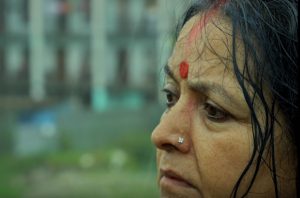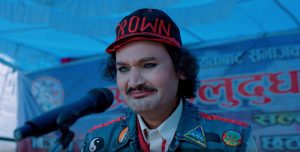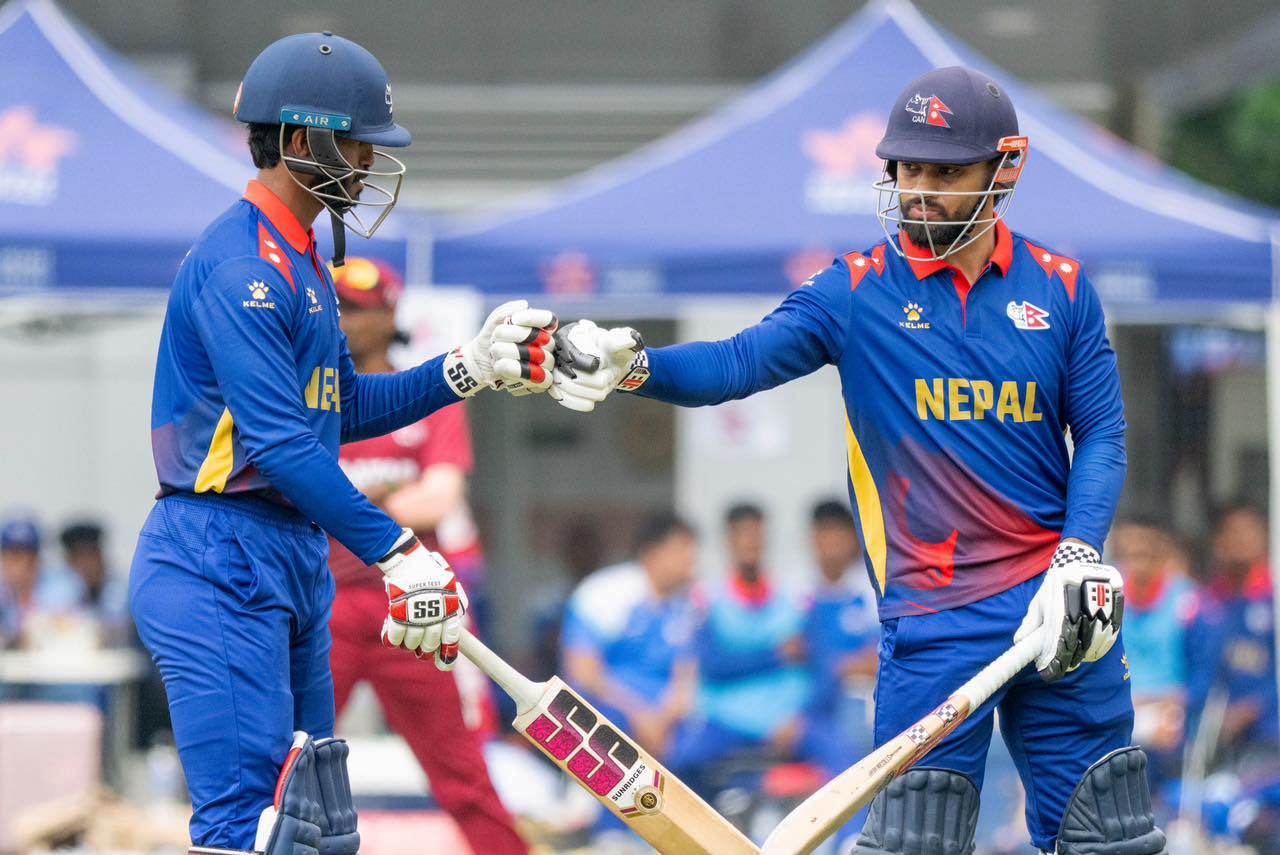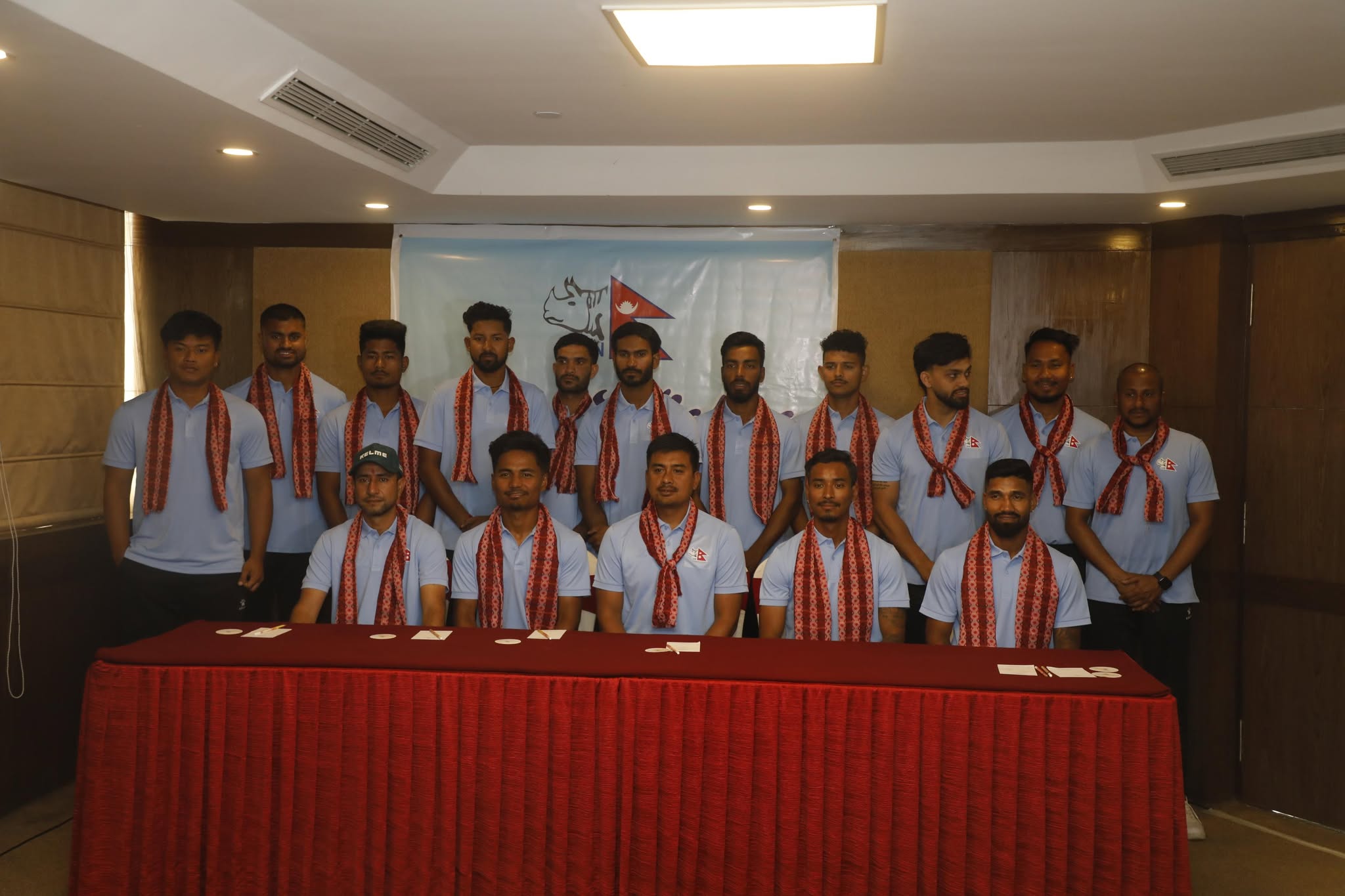
Before you go to the theatre to watch this week’s release Saili, understand that the movie is not an extension to the popular song with the same title, though it borrows its title from the sentimental piece. Along with the title, the movie also borrows lead characters from the song.
Yet, the film is a standalone story about the social cost of foreign employment that thousands of Nepali youth embrace as a compulsion or as a means to fulfill their dream. The plot is related to the everyday life of common people. At the same time, it has a romantic flavour as the lead characters pass through an emotional roller coaster of their own life.
Realistic humane story
Perhaps one of the biggest strength of any filmmaker is giving an artistic packaging to a usual story and presenting it to the audience as something unusual that they must see. Makers of Saili have made sincere efforts toward this.
The movie is set in Nepali village near a developed city. Like in every other suburb, people of this place are willing to adopt an urban lifestyle, but there are traditional barriers. There is a rich dad who lets his teenage son buy a sporty motorbike so that he can go to the nearby towns by bunking school. He, however, tries to restrict his daughter of almost similar age from meeting her boyfriend.
Interestingly, each character of this story has a humane face. No one is villainous in the movie. The heroine’s father looks antagonistic to the hero, but he is also a kind character, who has his own aspirations and limitations. The widowed father severing the ties with the daughter after she eloped to the man outside their community looks like an innocent victim of his situation.
This is part of people’s everyday reality. The world, in fact, is not fair—it does not move as we wish; it shatters our dreams and disappoints us even if we do not do any wrong to anyone intentionally.
‘Romantic’ social drama
Social commentary is not what the movie intends to serve the audience. In order to keep the audience, especially those of the young generation, hooked, the movie also includes elements of romantic relationships in the characters’ lives.
Our hero and heroine go through significant ups and downs in the movie—from their first meeting to an exciting elopement. Following that is a serious misunderstanding, which triggers the man’s efforts for a second marriage and suicidal thoughts in the heroine. Finally, it ends with a sign of hope that all problems are solved and their life will be going to move forward smoothly.
There is a parallel love story involving two friends of them. Though it is not as dynamic as of the leading couple, it adds interest to the story.
Purely romantic movies look unnecessarily cheesy and melodramatic to the modern audience. At the same time, pure social dramas appear like documentaries or activists’ publicity materials. Blending love stories with social messages is a useful trick for filmmakers. It has worked well in Saili.

Feminist agenda
The most apparent difference between the Saili song and the movie is that the woman, Saili herself, goes abroad to work. She is accused of infidelity from her own husband for her negotiations with the recruitment agent, and the husband warns of tying the knot another woman later. However, she dares to make her opinion clear about everything in front of the aggressive man and live a dignified life. Though the husband fears that she might kill herself, the lady appears bold enough to tackle what comes before her.
This lady essentially advocates against the implicit bias that Nepali society has against women. While many people in the society think that women should not be sent abroad for work and the government also has introduced restrictive provisions, Saili tells it loudly that women also have the right and responsibility to work wherever they find appropriate so that they can support their family.
The hero’s companion is portrayed as a representative of the patriarchal system as he frequently utters misogynistic remarks.
Acting and presentation
The script is well-written with short witty dialogues for each of the major characters. No one speaks lengthy made-up sentences in the movie.
The cast fit well in the story. Gaurav Pahari and Menuka Pradhan, the duo featured on the popular music video, look realistic in their acting. Pradhan’s facial expression reflects a confused but determined Nepali woman’s mindset. Pahari on his part looks carefree and honest as demanded by the role.
Equally commendable is the performance of Daya Hang Rai. Unlike his previous roles which would be totally comic, he has balanced light and serious moments and moods in this project. His female counterpart, Kenipa Singh, has acted okay; there is enough room for improvement in her skills. Maotse Gurung, a regular villain actor, has brought a humane face in his acting. Lokendra Lekhak has worked hard to show himself as a money-minded clever recruitment agent. Prakash Ghimire acts average.
Technical aspects of cinematography are fine. The tune of the original Saili song has been used in the background at the beginning, which sets the tone of the story. Likewise, the song plays over the credits at the end, effectively unifying the movie. Besides this, the movie does not experiment with any background music. There are a few songs, which do not add anything to the movie.
Selecting Ghachok and Hyanjakot villages of Kaski district to shoot the movie is also a prudent decision because the places are beautiful naturally whereas they appropriately provide a hybrid culture to the movie as demanded by the story.

The faulty side
There are some apparent flaws in the movie. In a village where a recruitment agency has its office and where the rich ride motorbikes, making young people rely on ‘love letters’ to communicate at this age is unrealistic. Whereas the hero calls the heroine over the phone at the last minute, no one uses Internet-based communications in the film.
Likewise, the legal hurdle in acquiring the hero’s passport looks invented. Whereas he has already acquired the citizenship certificate, the government agency should not have blocked his attempt to get a passport just because his legal age difference with his dad was just 10 years. In the same way, the two men’s adventure in locking the heroine’s dad inside his bedroom during the elopement is overdramatic.
Despite such minor errors, the visual storytelling is smooth and natural, which makes the film a must watch for those who want to see realistic stories of their society on the big screen.
Verdict
The movie is comparable to Bulbul released in February, not because both of them carry the story of foreign employment, but both of the movies focus on usual stories of ordinary characters, and present them artistically.
Like Bulbul, Saili will be appreciated by the critics, but its market performance is unpredictable.
—
Saili
Genre: Social drama, love story
Runtime: 130 minutes
Screenwriter/Director: Ram Babu Gurung
Cast: Gaurav Pahari, Menuka Pradhan, Daya Hang Rai, Kenipa Singh, Maotse Gurung, Prakash Ghimire, Puskar Gurung, Lokendra Lekhak
3/5












